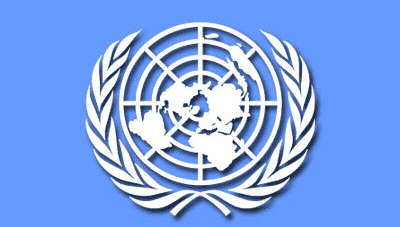Much enthusiasm is devoted to issues of health, environmental stewardship, and human rights at the United Nations. But for many officials at the highest levels of influence, these admirable values are distorted and reinterpreted in order to challenge our dearest traditions and moral principles. It’s time to take a closer look at how the highest circles of power in the international community understand the value of the human person.
One of the key outcomes of the Rio Conference on Environment and Development (1992) was the so-called “Agenda 21” which seeks to accelerate the “decline in population growth rates.” Last year, the U.N. Population Fund (UNFPA) oversaw spending $30.7 billion on family planning and sexual and reproductive health services that include abortion, chemical abortifacients, and sterilization. The annual Commission on Population and Development encourages these practices and pushes for the spread of comprehensive sexuality education for children as young as 10 or 12 years old. Their documents treat pregnancy as a disease to be strictly curtailed.
Agencies like U.N. Women, the Commission on the Status of Women (CSW), and the Convention on the Elimination of All Forms of Discrimination Against Women (CEDAW) harness these sentiments in their crusade to make abortion an internationally recognized legal right. Thankfully, calls from Western countries to incorporate a “right to abortion” at major U.N. conventions like the Cairo Conference on Population and Development (1994) and the 4th World Women’s Conference in Beijing (1995) were derailed by opposition from Latin American and Islamic nations. However, the agreed language promoting “sexual and reproductive health care services” and “gender perspectives” in these documents became the standard for all later resolutions.
Thwarted in their aim to recognize abortion explicitly, agencies like UNFPA and the U.N. Division for the Advancement of Women have made use of “special rapporteurs” to sneak it in retroactively. The rapporteurs’ expert testimonies often reinterpret existing documents in order to artificially develop a connection between human rights and abortion services. Once the terms are reinterpreted, these testimonies lay a foundation for more aggressive language in future resolutions. This same process was used to undermine the traditional understanding of male and female. While the term “sex” refers to the biological characteristics defining men and women, “gender” now refers to socially constructed roles and behaviors that individuals may or may not choose to identify with.
Abortion advocates in U.N. compliance committees have pressured nations to liberalize their laws on abortion in order to meet alleged international legal standards on human rights. In 2006, Colombia’s constitutional court was convinced to liberalize the nation’s abortion laws by statements from CEDAW. Non-governmental organizations like the Center for Reproductive Rights frequently use sympathetic U.N. agencies to advance similar attacks, such as those recently targeting Chile, El Salvador, and Peru.
Unfortunately, non-binding U.N. resolutions are often interpreted by member-nations as monolithic international consensus which should supersede their own domestic legislation. In March, Argentina’s supreme court “discovered” a right to abortion in cases of rape within its U.N. treaty obligations. Overreaching recommendations made by the U.N. International Covenant on Civil and Political Rights, and the Convention on the Rights of the Child were erroneously applied as binding upon the sovereign nation of Argentina.
The United States quietly leads the international charge to promote abortion abroad. Since rescinding the Mexico City Policy (which prevented American dollars from being used to fund abortion abroad), the Obama administration has relentlessly pressured other nations to remove restrictions to abortion. In 2009, Secretary of State Clinton lobbied the Dominican Republic to reject a constitutional provision to enshrine protection of the right to life from conception to natural death. Despite overwhelming international pressure, the Dominican Republic successfully passed their life-affirming constitution with the help of pro-life organizations like PersonhoodUSA.
Not to be deterred, a USAID report revealed that the Obama administration funneled over $23 million to influence Kenyan voters to endorse a pro-abortion constitution. The American embassy in Kenya later denied any involvement. International law has recently been introduced as a direct source of law in Kenya and may expose the nation to a fate similar to Argentina’s.
At the U.N., the United States has single-mindedly pressed abortion at the expense of mothers with poor prenatal care and those suffering from HIV. During negotiations at the Commission on the Status of Women in March, American diplomats refused to accept resolutions to reduce maternal mortality and to provide care for those with HIV because they did not meet the Obama administration’s aggressively pro-abortion standards. The radical language supported by American delegates created such a controversy that it prevented the commission from reaching any agreed-upon conclusions.
As the successors to the Rio and Beijing conferences approach – including the Fifth World Conference on Women – anti-family forces are marshaled to force the world to accept their radical understanding of gender, marriage, and life. It’s time to rethink the United States’ role in exporting abortion and family planning abroad. The Obama administration’s radical agenda should not be tolerated by the American people. Tell the United States’ mission to the United Nations how you feel about their actions behind closed doors on their website.
Next week, pro-family groups like the World Development Coalition, Family Watch International, and C-FAM will promote the dignity of life at the 45th Session of the Commission on Population and Development by showing the economic and social impacts of decreased fertility and depopulation. Although the international pro-life movement is outspent and outnumbered at the United Nations, we represent the voice of the people of the world, especially those in developing nations who are the primary targets of the population control agenda. With one voice, we ask, “If God is for us, who can be against us?” (Romans 8:31).







